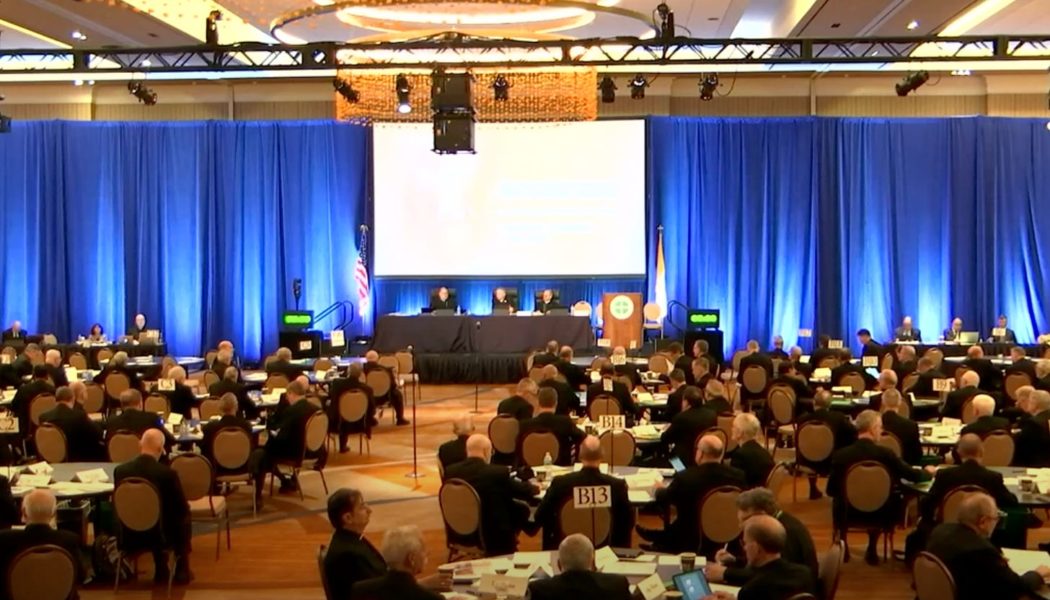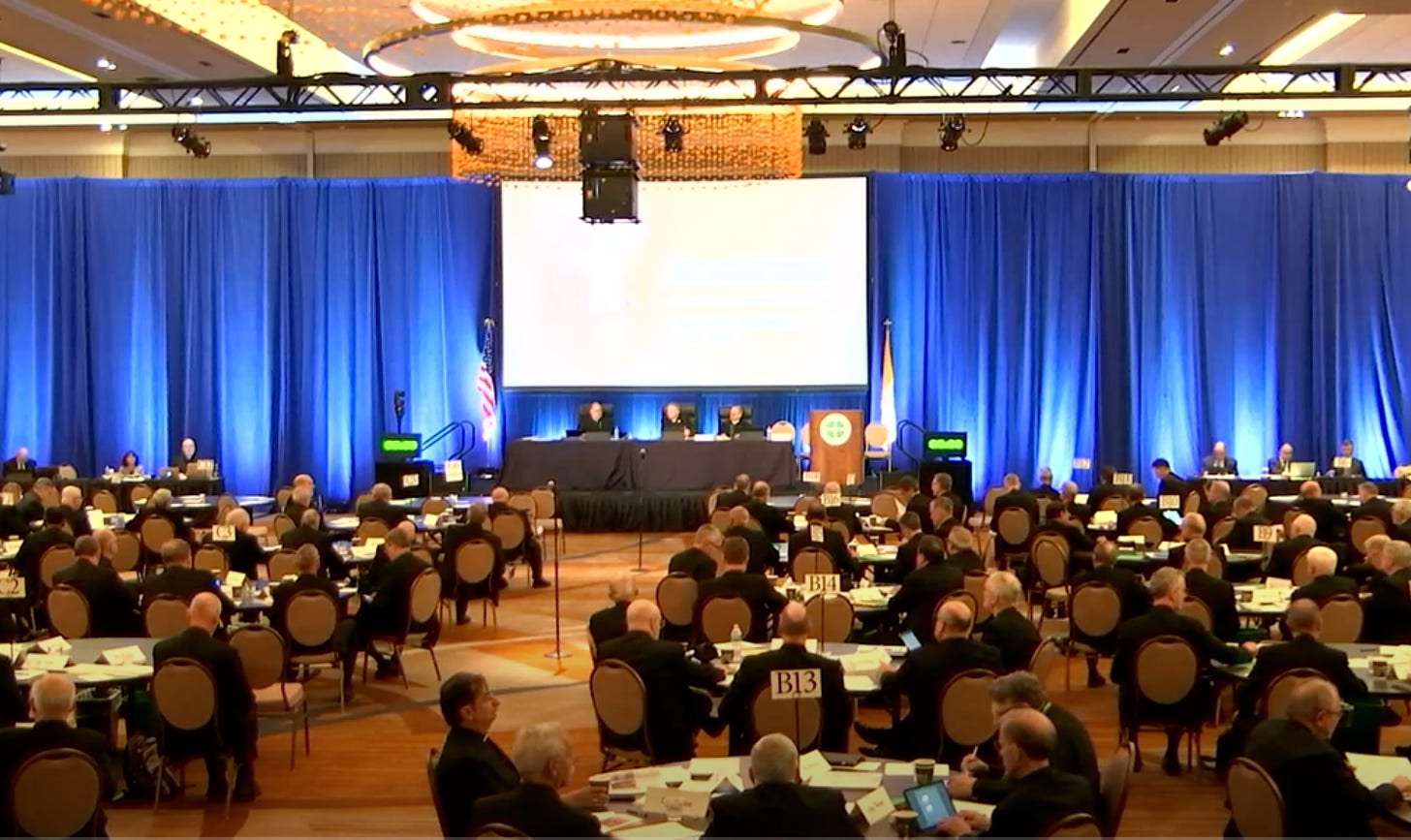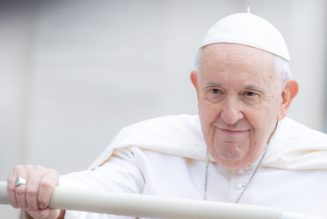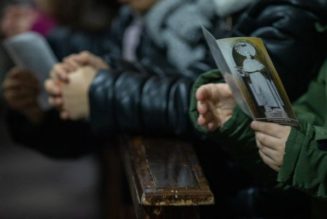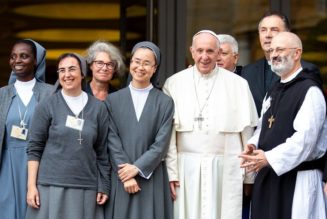Several U.S. bishops have requested that the USCCB canonical affairs committee provide guidance and direction on issues raised by the case of a diocesan hermit who publicly identified last month as transgender.
According to sources close to the conference, a group of bishops requested ahead of this week’s USCCB plenary assembly in Louisville, Kentucky that conference president Archbishop Timothy Broglio commission the canon law committee to discuss and give direction on transgender identity in religious life.
“Bishops asked [Broglio] to give all of this to canonical affairs because no one has said anything [about it]. This announcement was made, and now no one knows if the Holy See is going eventually to address it,” one senior source told The Pillar.
On May 19, Pentecost Sunday, Br. Christian Matson, a diocesan hermit of the Lexington diocese posted on Facebook, sharing that “I have now completed my period of initial formation and professed public vows of poverty, chastity, and obedience as a diocesan hermit for the Diocese of Lexington, Kentucky. I made first vows in August 2022 for one year, and renewed them in August 2023 for a further period of three years.”
Later in the statement, Matson disclosed something more.
“My friends, I would like to share with you that I am a transgender Catholic,” the hermit wrote.
“For me, this is a medical condition, probably a form of intersex condition in which the sexual differentiation of the brain diverges from other markers of sex,” Matson wrote.
“I have had a consistent male gender identity from my earliest memory, and the medical explanation best fits the circumstances of my own life.”
“I share this information now because I believe that we need greater understanding of this experience as a Church, and I feel called to do my part in deepening that understanding, so that we may come to greater unity, love, and trust as the One Body of Christ,” the hermit added.
The announcement raised a number of questions among Catholics.
Some expressed concern about the prospect that a person who identified publicly as a gender different from their biological sex could be admitted as a hermit, which is a form of consecrated life recognized by the Church, open to both men and women, and characterized by commitments of poverty, chastity, and obedience, as interpreted for each hermit by the instructions of a local diocesan bishop.
Others suggested that because a hermit’s life is characterized by “stricter separation from the world,” according to the Catechism of the Catholic Church, and “hidden from the eyes of men,” a public statement of any kind was inconsistent with Matson’s form of consecrated life.
The use of specific religious titles correlated to gender is not explicitly addressed in the Church’s canon law, nor is the admission to religious life of Catholics who identify as transgender.
But the decision of Lexington’s Bishop John Stowe to admit Matson as a hermit, with the officially decreed religious title “Brother,” and with Stowe’s decision to use masculine pronouns in reference to Matson, who is biologically female, have prompted criticism from many Catholics.
The bishops’ conference declined to comment Thursday on questions from The Pillar about how many bishops had requested that the issue be sent to the canonical affairs committee for study, or whether Broglio had done so.
But Broglio, for his part, told reporters Thursday that while the Lexington hermit had not been raised during the daily general sessions of the conference, which involve all bishops, the situation had been raised “on the committee level.”
“There is concern that has been expressed at some of the committee levels, because of the nature of what eremitic life is in the Church, and also the preparation necessary for that — and also just the general honesty that should be a part of that whole process of determining a vocation and responding to that vocation,” Broglio said during a June 13 press conference.
“So at this point, that’s basically where the discussion is.”
In March 2023, the U.S. bishops’ committee on doctrine issued a “doctrinal note on the moral limits to technological manipulation of the human body.”
The document taught that surgical or chemical interventions which “aim to exchange the sex characteristics of a patient’s body for those of the opposite sex or for simulations thereof” are “not morally justified either as attempts to repair a defect in the body or as attempts to sacrifice a part of the body for the sake of the whole.”
“Such interventions, thus, do not respect the fundamental order of the human person as an intrinsic unity of body and soul, with a body that is sexually differentiated,” the conference document taught.
Comments 28
Services Marketplace – Listings, Bookings & Reviews
